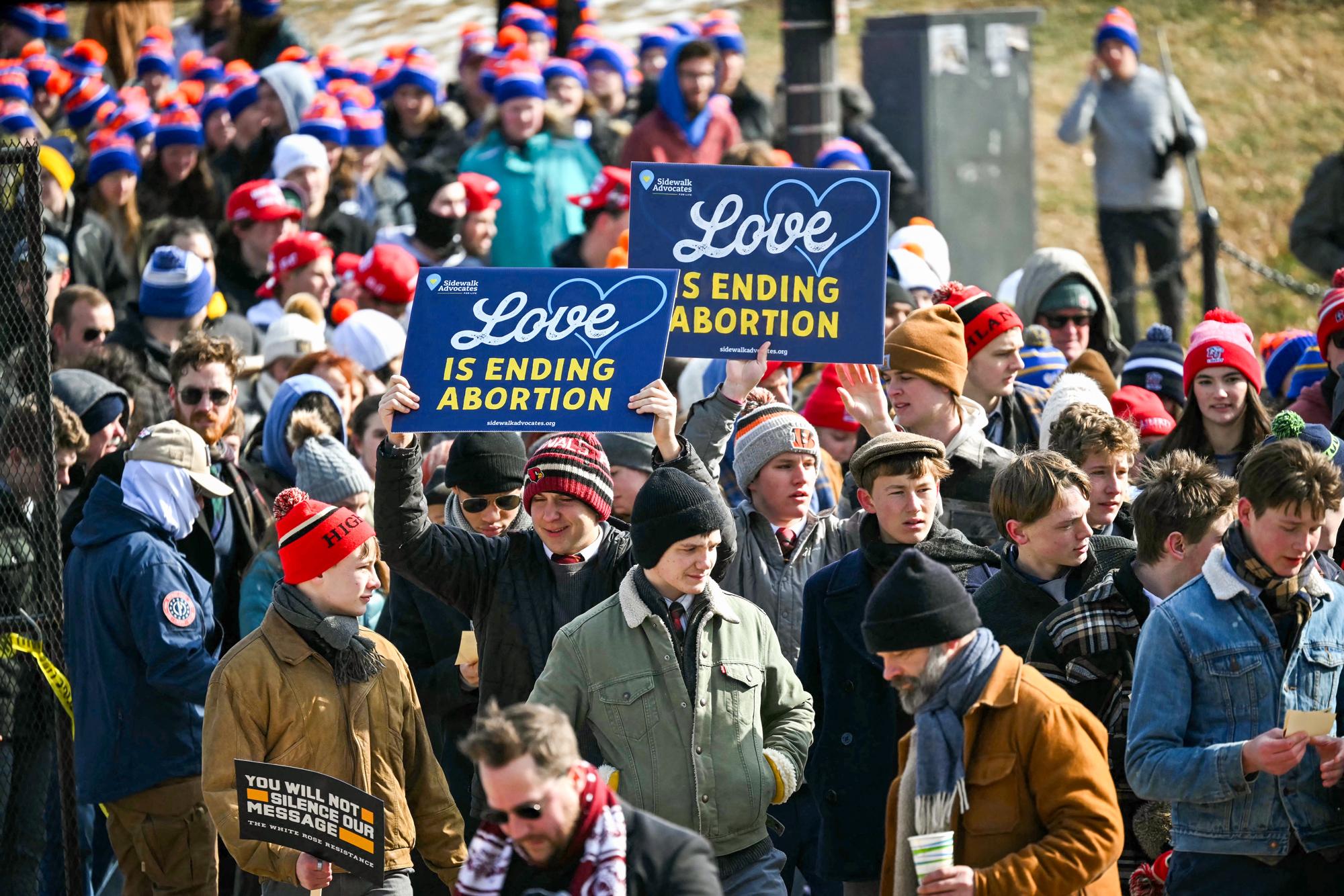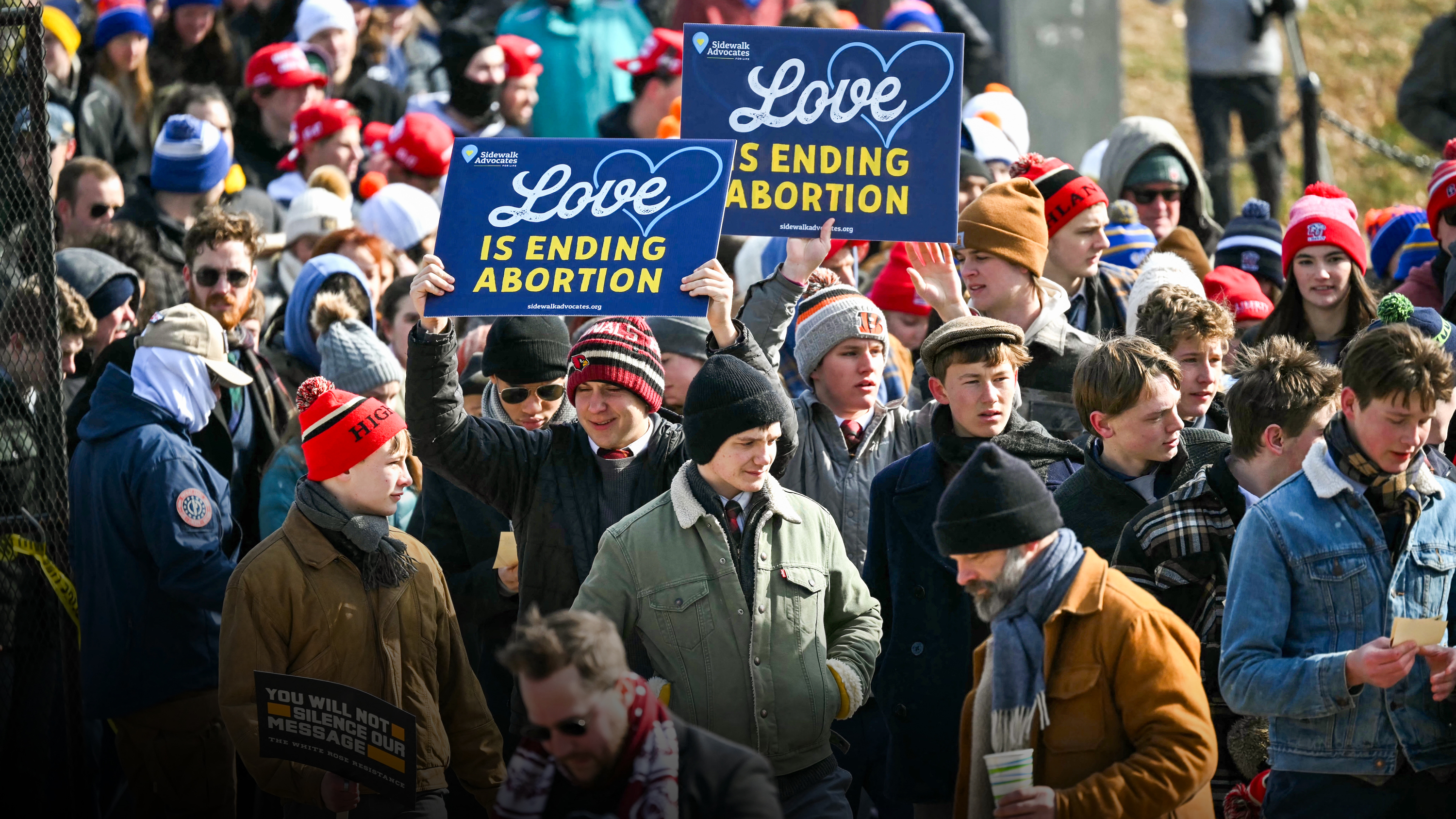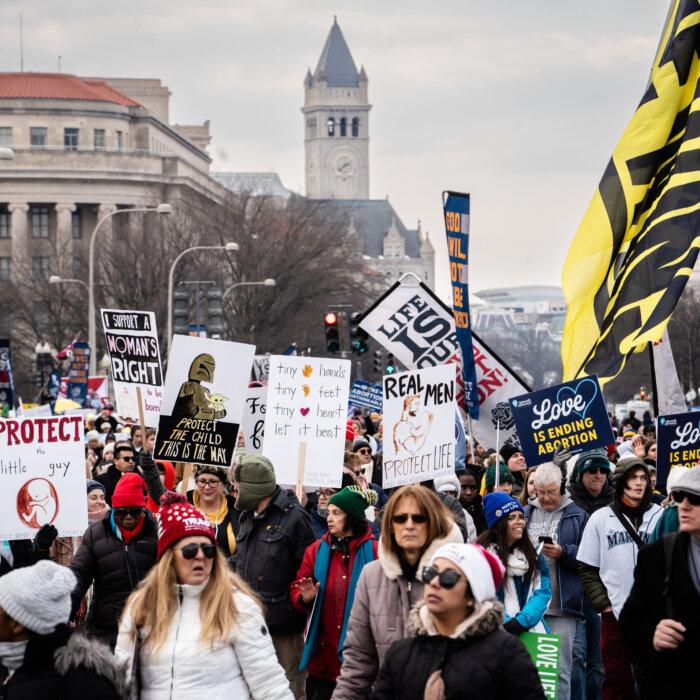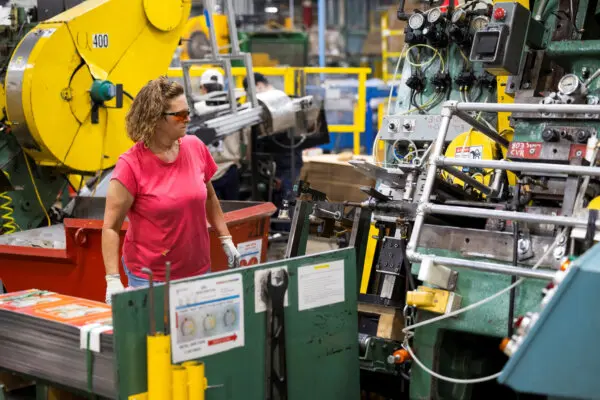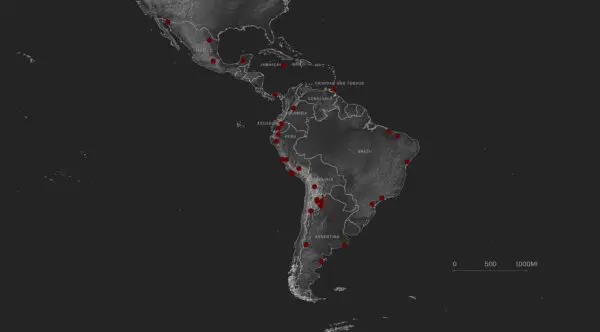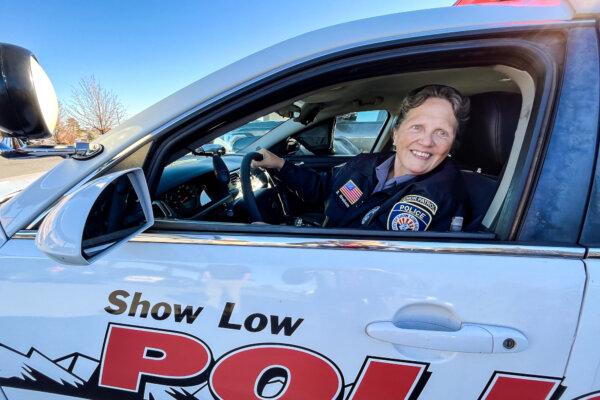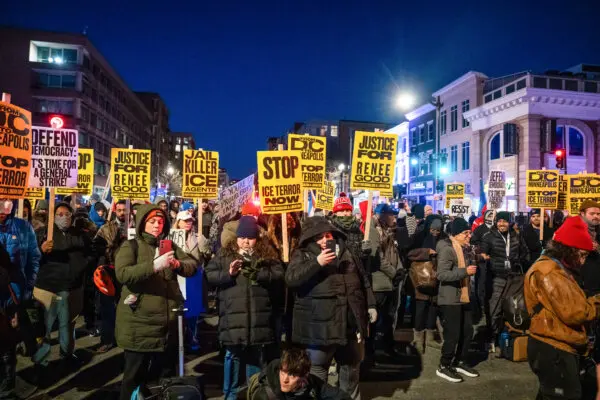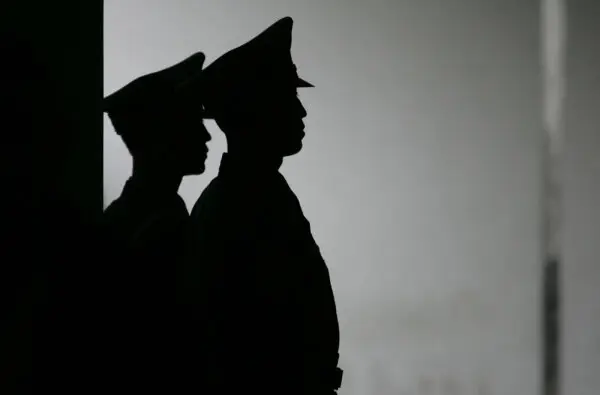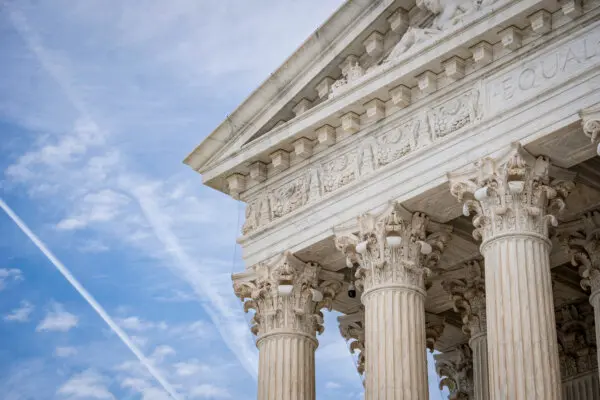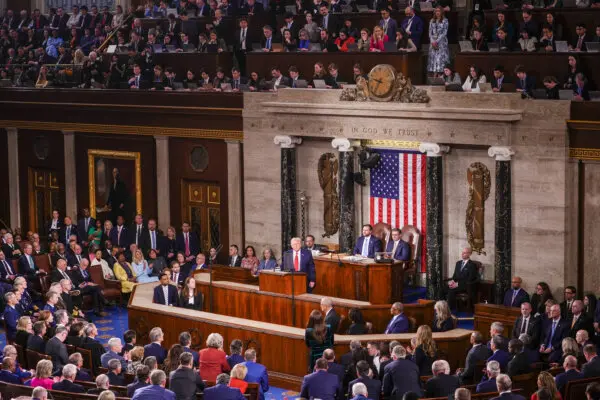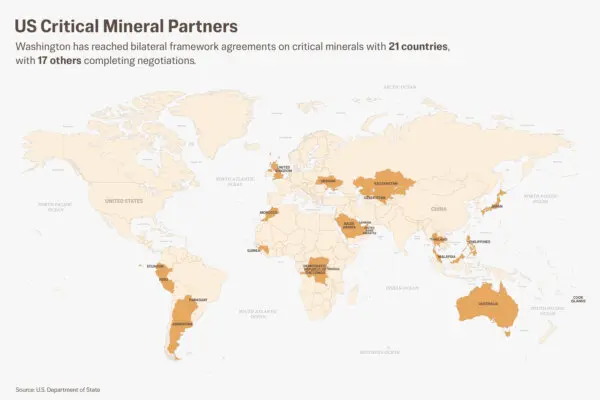WASHINGTON—Carlos Lamoutte and GianLuca Pasquotto listened intently as Vice President JD Vance spoke to a crowd of tens of thousands gathered on the National Mall on Jan. 24 for the 52nd National March for Life.
The seniors at Jesuit High School, an all-boys Catholic school in Tampa, Florida, traveled to the nation’s capital with more than 45 fellow members of the school’s pro-life club, which began sending students to the March for Life more than a decade ago.
But they were just a fraction of the thousands of young men from schools, colleges, and seminaries across the country gathered in the nation’s capital to make their voices heard.
Those young men were joined by little boys walking hand-in-hand with their fathers and mothers, and older men bearing signs with messages such as “Abortion Is Failed Manhood” and “Men Regret Lost Fatherhood.”
Their presence at the march, along with male leaders such as Vance, Florida Gov. Ron DeSantis, House Speaker Mike Johnson (R-La.), and Senate Majority Leader John Thune (R-S.D.), exemplified their determination to hold fast to their beliefs. President Donald Trump also shared a video message: “We will again stand proudly for families and for life.”
March attendee Ryder Wittman, 20, a senior at Colorado Christian University, said, “I think a lot of guys aren’t even aware that they can be part of this.”
He said his friends and peers have told him, “Oh, I didn’t know I could have an opinion about that. I didn’t know there was anything I could do. I thought that was a female thing.”
Wittman said that while volunteering at a pregnancy center in Denver, he comes face to face with young men who feel voiceless over an unplanned pregnancy, even when their girlfriends want them to speak up.
“A lot of guys come in and they’re my age, you know, they’re 19, 20, 21, and, you know, the mentality they’re told is ‘I can’t have an opinion on this,’” he told The Epoch Times.
“And their girlfriends, they’ll be looking at them saying, ‘Hey, lead me in this. Tell me what we should do.’ So, the big thing for me is how do we challenge that. How do we combat the idea that men don’t have a say here?
“It’s really heartbreaking and tragic to witness.”
Several pro-life groups have recognized that push to silence men on the issue and have even seen it arise in the pro-life movement.

“Sometimes the pro-life movement risks falling into this mistake, that it’s just a women’s movement,” Priests for Life National Director Frank Pavone told The Epoch Times. “Sometimes you‘ll see these events being arranged, and they say, ‘Oh, let’s just let the women speak. We’ll only let the women speak.’ That’s a big mistake.
“Of course, we want the voices of the women to be loud and clear. We bring forward the voices of the women in our ‘Silent No More’ campaign, those who have had abortions. But even there, the men are involved as well.”

Men need to resume the role of protector, they said, praising the number of young men they see becoming active in the pro-life movement.
“It’s so beautiful to see because if we had more guys like that, back when Norma McCorvey was around, and Roe v. Wade started, I don’t think we'd be where we are,” Morana told The Epoch Times.
“It’s strong men ... and boys growing up who will defend their women and put them up on a pedestal like they belong and really celebrate motherhood.”
Students for Life’s Kristen Cooper, 21, also emphasized the need for both men and women to be involved.
The Post-Roe Generation
The young men who spoke to The Epoch Times said they see the need for a permanent change in the nation’s culture.“I believe our generation has a great responsibility to redeem our culture of death and transform it into a culture of life,” Lamoutte wrote in an email before the march. “Now that Roe v. Wade has been overturned, it’s time to focus on our culture.
“As St. John Paul II constantly proclaimed, culture is more important than politics and economics when it comes to true and lasting change in our society. I think that’s what our post-Roe generation is called to above all else.”
Both of Lamoutte’s parents are obstetrician-gynecologists. Having two doctors as parents—and watching his dad volunteer for an abortion reversal hotline—was formative, as he heard of crisis pregnancies and women wanting to reverse first-trimester abortions.
“Having such a close experience with these patients gave me a different perspective, which caused me to become very passionate about the pro-life cause and inspired me to stand up for these women and their children,” he said.

Testimonials also brought Pasquotto fully into the pro-life movement.
He told The Epoch Times via email that he initially joined Tampa Jesuit’s pro-life club because his brother had been a member for four years and had participated in three March for Life trips.
He said the turning point in his conviction occurred during his first March for Life when he heard the “Silent No More” testimonies of women who had abortions and were now speaking out about their remorse and continued pain and suffering.
Survivors
Abortion has directly impacted every generation since Roe v. Wade, Pavone said. Those generations are connected by the fact that they are survivors; while their own parents may not have considered aborting them, they were conceived, carried, and born in a society that did not offer them protection.That awareness of being a survivor, he said, should fuel people to speak up.
“In speaking for the unborn, you are speaking up also for yourselves,” he told The Epoch Times. ”If you were not protected in the womb, you’re speaking for yourselves.”
Speaker Johnson recognized that defining moment as well, telling the crowd of marchers about how he was the product of an unplanned pregnancy and born just one year before Roe v. Wade.
“I am so eternally grateful that my mom and dad ignored all the people who told them to just take care of that problem, and they chose to embrace life and to have me, the first of their four children,” he said.

“It’s a simple fact, a very simple fact, that if they had not done that, then I would not be here.”
Johnson said he often wonders “who else we have missed,” and what those individuals might have contributed to the world if they had been given the opportunity to be born.
“It’s a matter of basic humanity to ensure that a child who survives an abortion attempt should be cared for as he or she is lying on the table gasping for breath,” Johnson said.
He praised the activists for their collective efforts over the more than 50 years since Roe v. Wade was decided.
“Together, we are rebuilding a culture of life,” Johnson said.
The students of Tampa Jesuit High School also received words of encouragement from their Florida state senator, Jay Collins.
“Your courage and dedication to protecting the unborn show the very best of what our community stands for—faith, service, and standing strong for what’s right,” he said when The Epoch Times asked him about their participation.
“As you make your voices heard, know that your actions matter, and you’re part of a movement that can change hearts and save lives. Stay bold, stay focused, and keep fighting the good fight.”

Culture of Life
Although the U.S. Supreme Court struck down Roe v. Wade in June 2022, and other legislative victories have been won, those who spoke to The Epoch Times before and during the March said the fight is not over.“The job is not done,” Pasquotto said.
“Although a monumental feat, the overturning of Roe v. Wade does not ban abortion through and through.
“A much more difficult task is at hand: getting abortion at any stage of the pregnancy banned in each state. In fact, now more than ever, it is crucial for men to step up because there are still tens of millions of people in need of the truth, in need of our prayers, and in need of action.”
Many of his schoolmates continue to pray in front of an abortion clinic every Friday, as well as every year on their trip to the nation’s capital.
They pray “for all women who are scared, confused, and alone,” and for all of the babies who don’t have someone to stand up for them.
They also pray for men faced with a crisis pregnancy, who may not know how to support their girlfriends, wives, sisters, or daughters at that difficult time.
Lamoutte added that making the government aware of the nation’s enduring pro-life movement is crucial to continuing to build a culture of life.
“It speaks to our nation as a whole to let them know that our movement isn’t going anywhere and will continue to fight for the cause of life and the ultimate end to abortion,” he said of the March of Life.

Setbacks and Challenges
The pro-life movement has had its setbacks, both collective and individual.Post-Roe, several states passed legislation to protect abortion access. Meanwhile, the students, although surrounded by like-minded communities and families, said they have faced prejudice in person and on the internet for their beliefs. In some instances, they’ve lost friends along the way.
Young people are coming up in the movement who seek to change some deep-rooted problems that, they say, continue to hold it back.
One change Wittman believes is necessary is improved communication between the pro-life movement’s different factions.
While some groups, such as Students for Life, focus on defunding Planned Parenthood, other groups have other priorities.
Some pro-life groups praised DeSantis for signing Florida’s heartbeat legislation, which outlaws abortion after six weeks of gestation. Others—such as the pro-life abolitionist movement—refuse to see legislation with any abortion concessions as a sign of progress.
“When we get to those decisive moments, our lack of consensus hurts us,” Wittman said.
Despite the challenges, members of this younger generation said they remain hopeful for the future, with the March for Life serving as an annual renewal of that hope.
“I truly believe there is a younger generation that is standing up for the cause of life and already in the works of transforming our culture into one of life,” Lamoutte said.
“Seeing the many young people on this March and activities surrounding it year after year continues to inspire me.”

